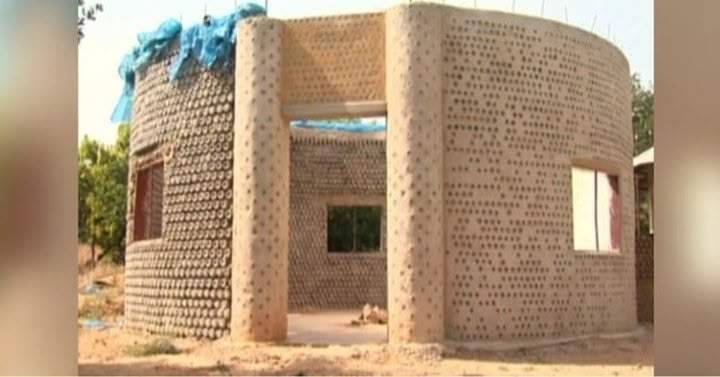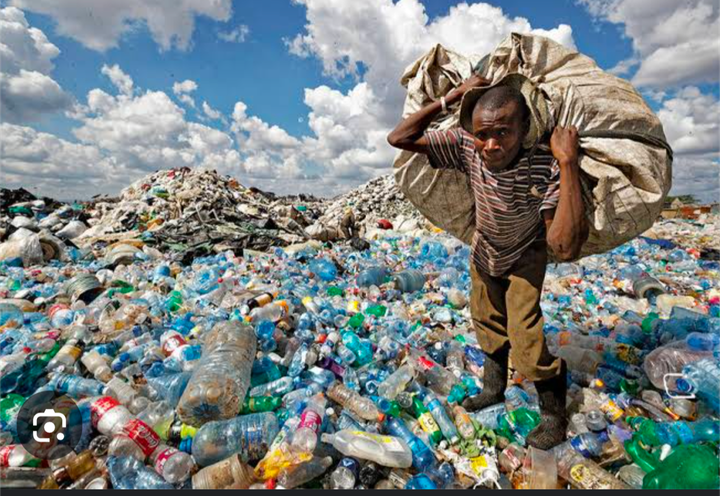@
ninalanyon most plastic bottles AREN'T recycled. Most end up in landfill or the sea.
Of the roughly %5 - (if youre lucky) -30% that do, they end up as carpets and other polyethyline type products.
(Which takes away from the sale of natural versions).
Plastic bottles last hundreds if not thousands of years. Even in the sun.
This is also in an arid third world country. Sun baked bricks can also last centuries.
The same type of daub is used and is something that has to be maintained, but not at a high rate like we do our wardrobes full of clothes or lawns.
These places have little resouces.
They often scrounge from city dumps and roadsides.
These houses are literally made from 'found objects'.
Its not going to be 'scaled up' .its a way for the poor and poverty stricken to build a house for practically free.
Instead of dumping on an ingenious project of hope that will house the homelss.... maybe look it up, read and understand the immmense amount of pros this has.
Rather than looking at it from a privileged consumer point of view -look at it from a poor, homelss poverty stricken community point of view.
First world countries POUR out plastic rubbish that often ends up on beaches of these counties and THEY have to clean it up.
We send ships of our refuse to their country to dump.
Millions and millions of tons of it.
Im other third world areas the poor are being industrious and making stuff from what we throw away.
People are employed, (although poorly paid) to collect OUR rubbish, thousands of miles from where we used it - and were too lazy to recycle it.
Read. Learn.
Your arguments are ridiculous and ignorant.













